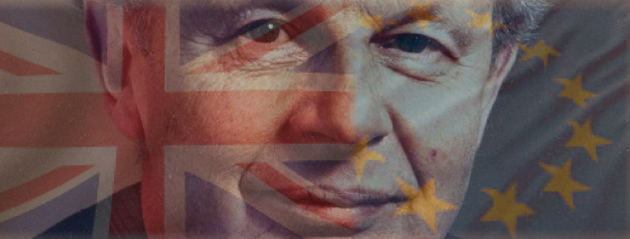Sir Fred Catherwood: “Patriotism gives to Caesar what is Caesar’s and to God what is God’s. But in the end nationalism wants total allegiance, because it is more than politics. It is religion.”
 Sir Fred Catherwood.
Sir Fred Catherwood.
Twenty-five years ago, Sir Fred Catherwood delivered three London Lectures in Contemporary Christianity. He opened with A United Europe–can it work? Then followed Nationalism, patriotism and Christianity. Lastly he spoke on Towards greater democracy. These were then published by IVP in book form, with some added chapters and appendices, as Pro-Europe?
Failing to find my old dog-eared copy as the Brexit debate loomed, I replaced it via Amazon for one cent plus postage. It has made interesting reading in the light of today’s debate which is stirring fears and uncertainties not only in Britain but on the continent and even beyond.
Sir Fred passed away in 2014 after a distinguished career in business, industry and politics. He served as vice-president of the European Parliament (1989-91), and then as president of the UK Evangelical Alliance (1992-2001). He (unknowingly) mentored me through his books and talks in the early ’90’s when I was searching for the ‘mothers and fathers’ with God’s heart for Europe in my new leadership role of YWAM Europe.
While much has changed in this quarter of a century–the European Union, then called the European Community, had only twelve members, and Euros were not yet in circulation–Sir Fred was already addressing some of the issues being hotly disputed today about Britain and ‘Europe’ way back then.
Here are some passages from his chapter on Nationalism, patriotism and Christianity.
“I believe that there was and there is a ‘factor X’. It is called ‘nationalism’. I do not believe that the majority of people in Britain are nationalistic–certainly not the younger generation. But it is evidently a much more potent factor with us than with our community partners.
“It is easy to recognize nationalism in other countries, but much more difficult in our own. When Mrs Thatcher delivered the annual lecture at the College of Europe in Bruges (Belgium) (1988), our colleagues in the European Parliament judged it nationalistic. Their strongest objection was not that she defended the need to maintain a national identity–with which they all agreed–but that its central allegation, that Britain’s national identity was under attack, smelt of the nationalistic rhetoric which always has to find an outside enemy. Since none of them believed that their national identities were under attack, they saw this as a deliberate and dangerous stirring up of nationalistic feelings for political purposes. And they do not confuse nationalism with patriotism.
“Nationalism sounds fine among our own folk, but it has a very different and much more hostile sound to neighbouring folk. Nationalism, like racism, is separatist and divisive. ‘England for the English’ leads to ‘Scotland for the Scots’ and ‘Wales for the Welsh’ and ‘Ireland for the Irish’. After twenty years of killing in Northern Ireland, nationalism no longer seems such a good idea in Ireland, nor does the equal and opposite reaction to it.
“Seeing one’s own country through other eyes makes one conscious of an English nationalism which one never noticed before. Nationalism is not, as those who hold it argue, a matter of protecting British interests; it is a religious belief for which the Union Jack or the Cross of St George becomes the religious emblem. We still have a hangover from the irrational and anti-European propaganda which has been beamed at the British people for most of the time since we became members of the Community (1973), and which keeps breaking out again. This antagonism serves no British interest. Instead it puts Britain on the sidelines.”
How much of Sir Fred’s concerns are still relevant to Britain today is what the British public will have to decide in just 17 days. My concern is how much Sir Fred would want to address other EU members today where the ugly spectre of nationalism is re-emerging.
Jeff Fountain is Director of the Schuman Centre for European Studies, and speaks on issues facing Christians today in Europe. He writes at Weekly Word.

Las opiniones vertidas por nuestros colaboradores se realizan a nivel personal, pudiendo coincidir o no con la postura de la dirección de Protestante Digital.
Si quieres comentar o